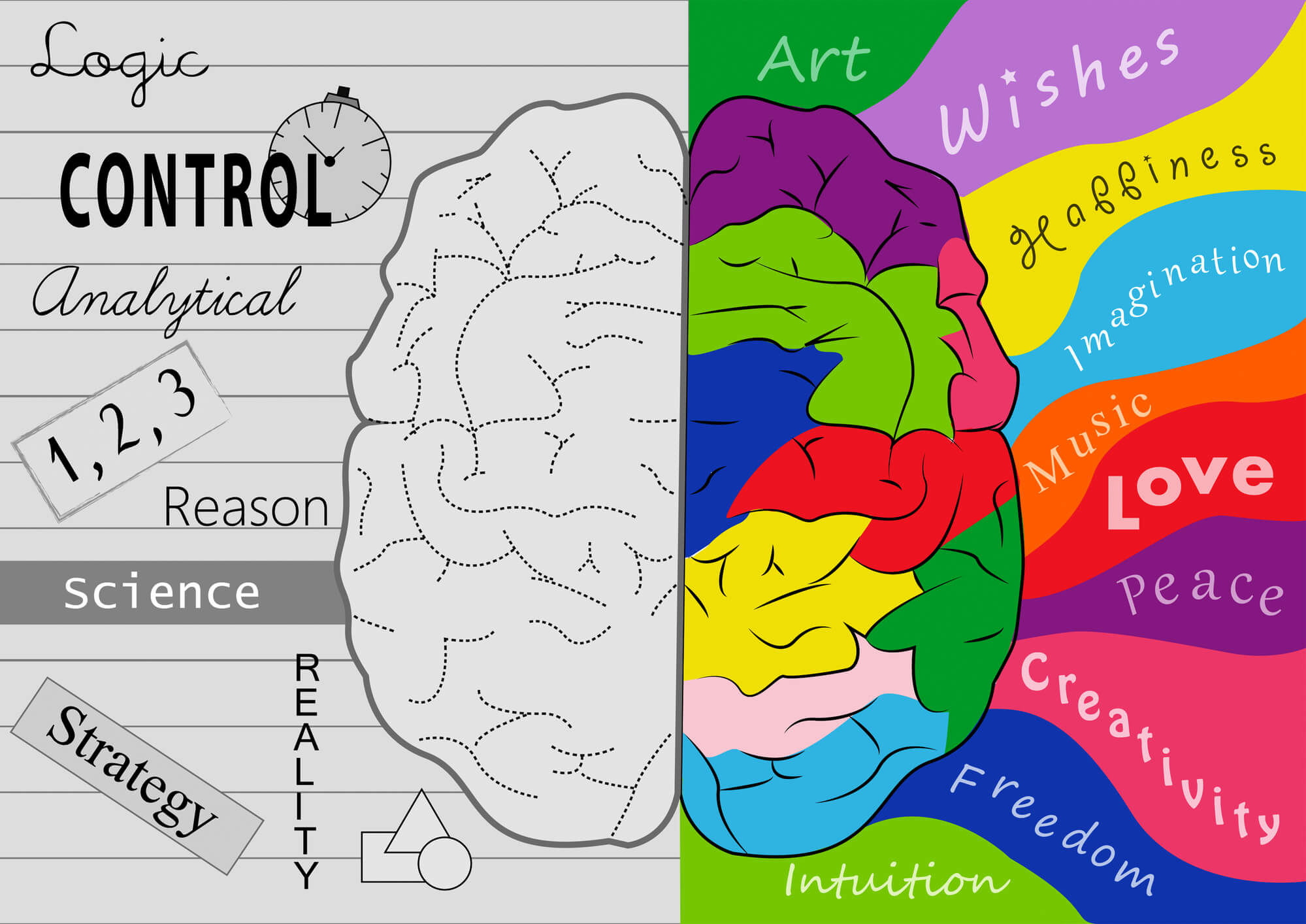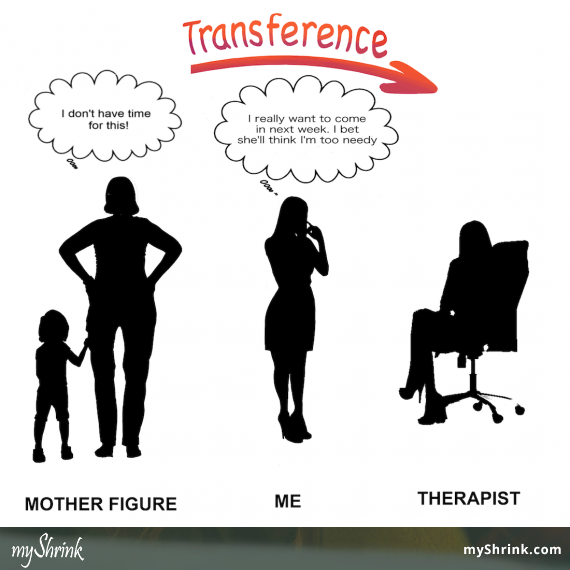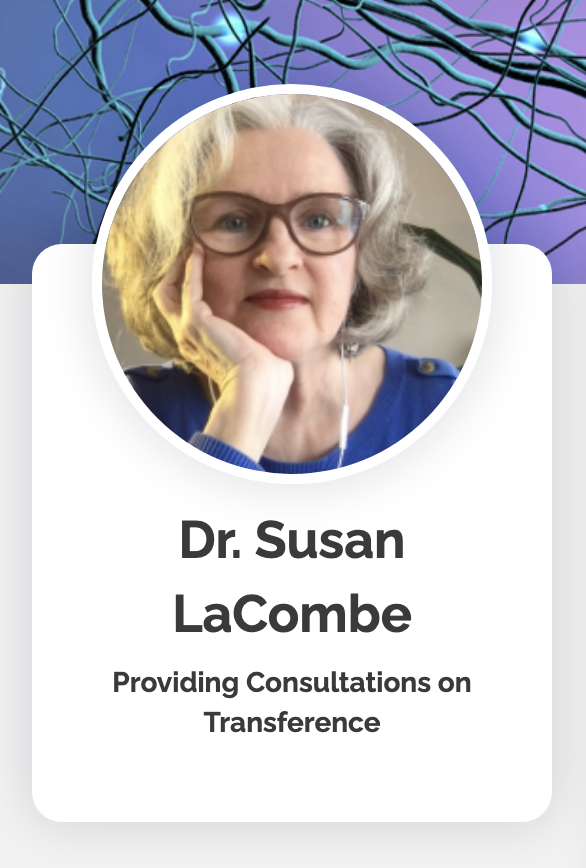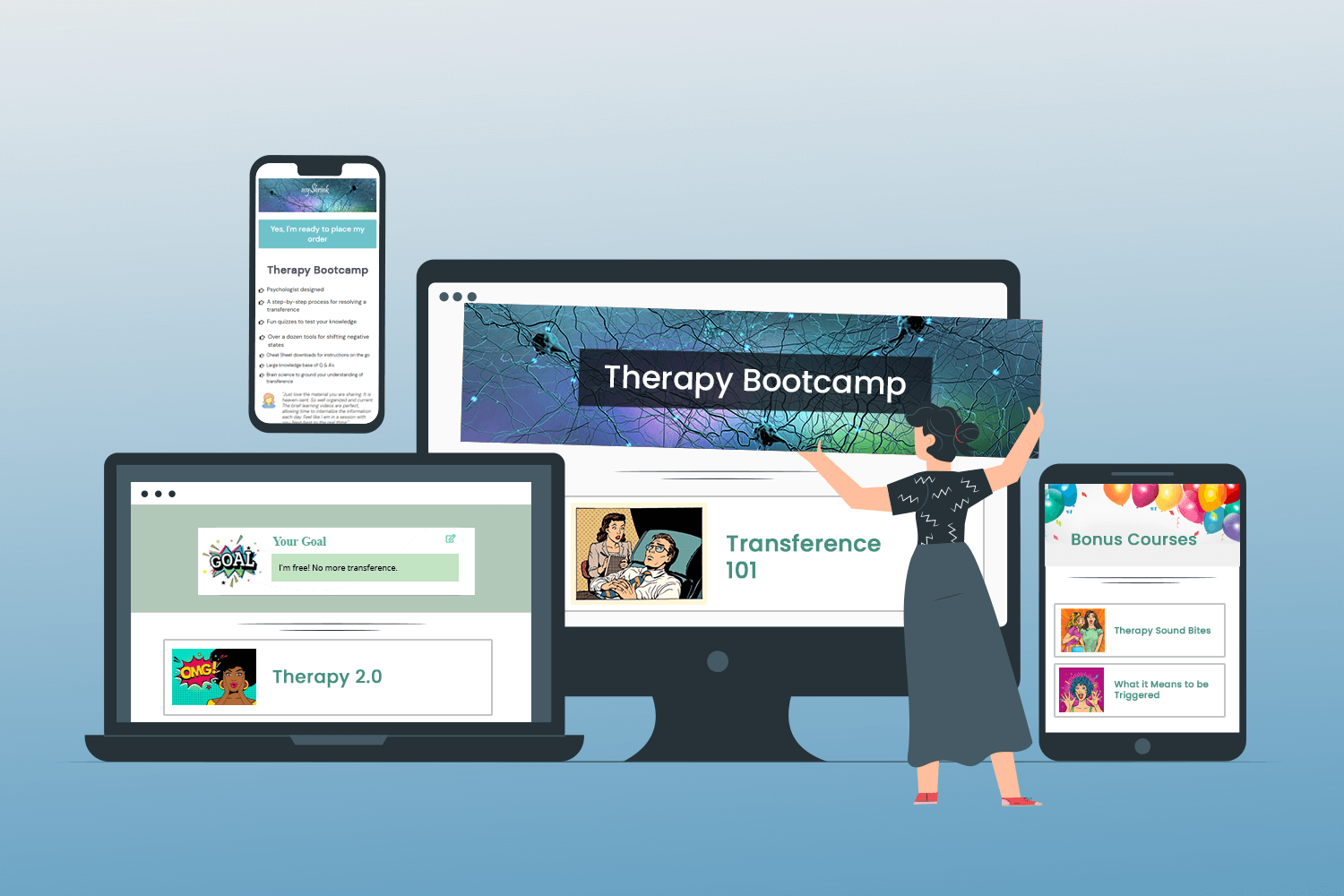Yes, how to deal with transference. You started therapy to solve a problem and now you face an even greater one. Your therapist absorbs your everyday waking moments.
One thing's certain....you can’t stop thinking about her - and it’s interfering with your life!
Hi there! My name is Dr. Susan LaCombe and I've practiced as a psychotherapist/psychologist for almost thirty years.
I wrote an article online in 2006 on dealing with transference issues and soon after I received an outpouring of questions and comments from visitors.
It turns out many of my colleagues' clients were suffering—mostly in silence—tortured by a transference that seemed to drag on with no end in sight.
I felt something was wrong with the depth of suffering they endured. This was not the same experience I was having with the type of therapy I used. I yearned to uncover a way to end their suffering.
As fate would have it, the solution emerged from an unlikely source, marking a pivotal turning point in my journey. The article you are about to read chronicles this odyssey of discovery, culminating in a fresh perspective on transference and its resolution, all stemming from these unexpected and stirring accounts.
Common misspellings: transferance, transferrence, transferrance, transferece.
Part 3 of a 4-Part Series
Part 1: What is transference? Do I have one?
Part 2: Typical Transference Examples
Part 3: How to Deal with Transference (you're here)
Part 4: Tips for Dealing with Transference (Q&A's)
Related: Countertransference in Therapy
Related terms: projective identification, transference neurosis, parataxic distortion.
Dealing with transference—
as a teenager
As a young pre-adolescent I was obsessed with teen idols. Davey Jones (The Monkeys), Peter Noone (The Hermits) and Paul McCartney comforted me as I slept. They were my waking-hour companions. Thinking of them made my life feel magical.
By early adolescence my idols were replaced with a real live human being. Yes, I had a crush and I couldn't take my starry eyes off him! 🙂
Recall how easily you might have been embarrassed as an teenager. Now try having a crush in the worse public arena you can imagine: Junior High.

Of course I was not to know that both the attraction to my teen idols and my crush were serving a purpose. In fact, they served the same purpose as a transference might in therapy. In other words, transferential dynamics are attempts at the brain to make up for one's unmet developmental needs.
By the time I was an adult in ongoing therapy I already knew to distrust my inclinations in regards to transferential relationships. Thankfully, the type of therapy I received reduced the chance of transferences becoming full blown.
Not to say I was immune to the feelings that emerged in regards to my therapist - just that I could hold the feelings far enough away to feel I had a measure of control.
And with that control I had room to explore what actions on my part helped to reduce its hold on me.
Why transference shows up in therapy
Transference occurs when you unconsciously 'transfer' or attribute the feelings, memories and desires you experienced in your early important relationships to your therapist (or other health care practitioner).
Therapy heightens this unconscious propensity for bringing your feelings into the therapeutic relationship. It's intensified because therapy happens privately, within strict personal boundaries, and where the conversation is typically one way.
"I don’t understand what's happening. I’m not into women and now I’m attracted to my therapist who’s female.
It doesn’t make sense."
Within the boundaries of the therapeutic relationship there are no distractions to dilute how you experience your therapist. Indeed, the feelings that surface can feel as though they’re caused by the therapist.
Transference is an experience
Recall your earliest friendships. Would you experience a childhood friend the same way if you were to meet him or her for the first time today?
In fact, would you even become friends today?
What about meeting an old love? Would the attraction still be there after all the experiences you've had in the intervening years?
How you experience someone is unique to you.
Here's an example from my personal life.
There's a professional colleague whom I regard as a father figure, even though we’re a similar age. I look up to him, and if I were honest with myself, I’m a little in awe.
But that’s not how my friend sees him. She finds him pompous!
So we all see each other based on our unique histories.
In effect, we 'transfer' the feelings, memories and sensations associated with our past significant relationships onto others in our own unique way.
Gaining control and dealing with a transference
Consider that how you deal with transference varies in every relationship. That includes your family and your friends (and even imaginary relationships triggered by teen idols :-))
It's useful to see the tendency towards transference on a continuum - the degree to which it's experienced is a matter of more or less.
It's the variability in your experience that holds the clue to gaining control and moving through your transference faster.
Transference is deeply rooted in the unconscious, in your early emotional experiences in particular. It's those memories that guide your moment-to-moment thoughts, feelings and behaviors.
Of course, those who cared for us early on - typically our parents - have the deepest impact on how we experience others.
The brain-wise approach for dealing with transference
If you’re in therapy you already know that the relationship you have with your therapist is not ‘typical’. For one, the focus of discussion is on you alone.
Good therapists won't say anything about themselves that isn’t in the service of helping you, the client.
This experience can easily trigger early memories (good and bad) of being cared for as an infant, when someone had to feed, clothe and bathe you.

Indeed, for many, therapy might be the first time in their lives they’ve gotten so much personal attention. In fact, this attuned care can be so unsettling that some clients never return!

Brain Fact: The brain's inborn drive for growth and wholeness will unconsciously direct you to seek experiences that complete you.
Even if you skip a stage of your emotional development you will still feel a need to deal with any unfinished business that resulted. Tying up those loose emotional ends could be the primary benefit.
That’s the task that needs to be accomplished when dealing with your transference.
In other words, as your relationship with your therapist evolves, familiar feelings related to previous connections with others (even other therapists!) are triggered. You experience your therapist - in the present - in much the same way you had experienced another person from your past.
Again, transference happens when you unconsciously transfer the feelings, memories and desires you experienced in your early important relationships onto your therapist.
Why would I experience my colleague as a warm father figure when my friend finds him pompous?
One clue is that my biological father wasn’t in my life very long, and the stepfather who came along later was emotionally unavailable.
From an emotional development point of view it stands to reason that inside I feel incomplete - I yearn to have a 'make-up' experience that would make me feel whole.
How to deal with transference in therapy
Basically, transference provides an opportunity for these early events to be re-experienced, not merely discussed in therapy.
Transference brings these buried memories to life, where you can work through the underlying unmet needs or developmental gaps.

What's key to dealing with a transference is to understand that it's a right-brain, emotional challenge, not a left-brain analytical problem to be solved.
For instance, you can easily think differently when you have more information - like reading this article. You might even have an "aha" moment:
"Oh, that's why I have a Mommy transference!"
That's using your left brain.
However, to exploit and truly deal with your transference - to actually feel different - you'll need a new experience.
The right brain changes as the result of experience.
Thankfully, every session holds the opportunity for you to have that new "experience".
What a brain-wise "experience" looks like
Jennifer was now used to telling her therapist that she had feelings for her.
At times these feelings were sexualized even though Jennifer was heterosexual.

This was a important step for Jennifer. Instead of stuffing her feelings away she now felt sufficiently safe to bring them up again.

When these moments would arrive in the session her therapist gently guided her to stay with the feelings - and to go deeper with them.
Her therapist encouraged Jennifer to notice how the feelings showed up in her body. Jennifer might notice a clenching in her tummy or a tightness in her chest.
This "body practice" made it easier for Jennifer to stay with the feelings long enough to explore them.
Jennifer learned it wasn't just warm fuzzy feelings that emerged. With her therapist's gentle prodding, she also discovered deep-seated fears that her therapist might judge, and ultimately leave her. At other times Jennifer felt some anger towards her.
They would work towards Jennifer shifting to a new place with the feelings by conjuring up positive scenarios they could "play" with.
As her body-practice skills developed Jennifer learned to tolerate the feelings that arose. She was no longer at their mercy.

Talk to your therapist about dealing with your transference
Therapy can easily get stalled for a long time when ‘the elephant in the room’ (ie. your transference) isn’t brought into the work.
I strongly encourage you - to the best of your ability - to talk about any feelings towards your therapist. (For more info see Hannah in the Comments below.)
For one reason, it's no doubt the most pressing issue on your mind. Not to mention that resolving your transference has so many benefits.
This step though is not without risk - not just because you may feel embarrassed.
The greater risk is in how your therapist reacts.
For instance, some therapists disregard transference, seeing it as an irrelevant but unavoidable by-product of therapy, more of a nuisance.
In other words, even if you disclose your true feelings your therapist may not think anything of it and continue working as though it didn't exist. He or she may just not understand the potential that transference holds for deep personal change.
Other therapists may feel uncomfortable if their skill set is not up to handling your disclosure. Some may even refer you to another therapist (I cannot tell you how many folks have written to tell me just that).
But even if he’s never dealt with transference in his practice, your therapist can simply do what others have done in similar situations - get supervision from a therapist who knows how to handle these situations.
Most clients are willing to work with therapists when an authentic connection has been made, even though the therapist openly acknowledges limited experience in this area.
(What client wouldn’t be thrilled to work with a therapist who values an authentic, attuned connection!)
Why some transferences are never resolved
Fundamental, lasting change is unlikely unless certain brain-wise conditions are met, even if the underlying emotions are released by talking about them in conventional therapy.
Here's the problem.
Conventional therapy takes one of two approaches to change, both of which I believe have serious limitations and a higher risk for emotional harm.
One involves the therapist presenting as a blank screen upon which you, the client, verbally project a picture of your emotional state. This is the psychoanalytic approach described above.
While many psychoanalytic approaches have softened the blank screen approach, this model still risks leaving you feeling abandoned in regard to emotional containment or attuned care.
That's because the main idea is flawed (ie. that you will change as a result of insight).
However, it's my belief that even if your psychoanalytic therapist is emotionally available, it's unlikely that you've been given the tools to help you deal with the flood of feelings that get stirred up.
In other words, the question I pose is, how can you "take in" and "learn" from the caring interventions of your therapist if you're almost immediately triggered into the possibility of losing that same care?
The second approach assumes that changing your thoughts will change your emotions (in particular, rooting out irrational thoughts). This principle is used in cognitive behavioral therapy (CBT).
Anyone who understands how the brain is organized will appreciate what a tedious and almost impossible task this is.
For clients working through intense transference feelings, these two approaches ultimately end up sending clients into a re-experiencing of what got them to therapy in the first place: insufficient attuned care.
In my view, these approaches leave out what research in emotional development and neuroscience have confirmed over and over: personal change in therapy depends upon your experience in therapy, not on insight.
If resolving the transference is left to chance, it could easily take much longer than necessary, often years longer.
Given what we know about how therapy changes the brain, we can use body based techniques to resolve the transference while at the same time advancing, even accelerating, the therapy itself.
So let me be clear about this . . .
Can Cognitive Behavioral Therapy (CBT) resolve transference?
As long your therapist goes beyond the standard technical aspects of the model I believe it's possible to resolve a transference. There are always a few heartfelt CBT practitioners who manage to help their clients in deep and meaningful ways 🙂 (See Carol in Comments below) I
However, note that being emotionally available, being present to feelings, and being focused on moment to moment interactions is not taught as part of the CBT model.
What if your therapist is psychoanalytically trained?
Here the transference can be resolved only to the degree that your therapist departs from the traditional ‘blank slate’ model (ie. this model discourages the therapist from saying too much, does not value emotional availability, and prefers analysis over present moment experience).
And yes, there’s some heartfelt psychoanalytically-trained practitioners who manage to help their clients in deep and meaningful ways anyway 😉
Can transference be resolved if your therapist is ‘body-based’ (ie. somatic therapists)?
Yes, and probably faster than the average therapist.
You see, the body-based approach is the clinical application of the best of brain science for one very important reason:
The basic working concepts of body-based work include attachment, emotional containment, moment to moment interactions, and presence. Each ensures that any transference reactions will be recognized, examined, and worked through in your therapy as they arise.
It’s also the best treatment model for anxiety because body-based therapists know more than anyone that their ability to regulate clients’ high states of emotion is based on their own nervous system capacity to modulate seemingly threatening emotional energies.
Body-based therapists also have numerous tools ("self-regulating techniques") that enable clients to manage overwhelming emotions on their own.
In particular, these self-managing techniques help clients to lay bare, resolve, then move beyond transference. Once free, they move on and fully develop their self-regulation skills.
On the other hand, even a body-based practitioner can take much longer to resolve transference if his or her nervous system can't contain and regulate a client’s emotional states.
If you've resonated with my writing and want to finally deal with your transference, check out Therapy Bootcamp.
Final musings
In terms of how health professionals deal with transference today, not a lot has changed since we first starting working with transference.
However neuroscience has a few things to say about the process from which we can take some lessons. It needn’t be the scary process many people describe.
Transference will not be prolonged or if approached with these insights in mind, In fact, I'd advise every client to take advantage of their transference.
New! Rate this article (anonymously)
Was this article helpful to you? Let others know.
Thanks in advance for your feedback
Shrinklady

From Dr. LaCombe . . .
Related Topic
What is counter transference?
Reenactments
Get Over Transference FREE eCourse
Is it possible to get rid of anxiety without medication?
External Resources
Transference among people online
** It's not to say that the therapists during this era weren't caring individuals, it's just that the theories at the time promoted value in "analysis". In truth, I imagine the field attracted those folks who were good at analysis - whether they were also "caring" seemed to be less important. It wasn't until decades later that we had the science to back up the idea that the therapist's emotional availability was playing a key role.
If you've read enough to be intrigued about my approach, click here to get through your transference.




